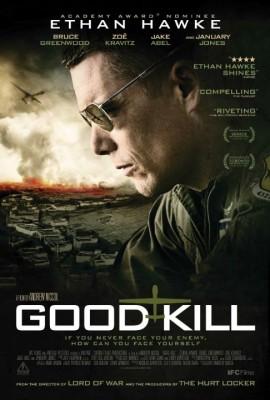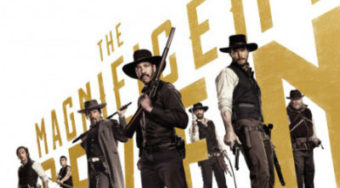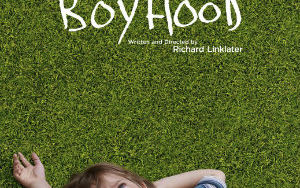Film Reviews

Good Kill
Genre: Thriller
Director: Andrew Niccol
Cast: Ethan Hawke, January Jones, Zoe Kravitz, Bruce Greenwood,, Jake Abel
MPAA-Rating: R
Release Date: May 15th, 2015
It’s hard not to be apprehensive when a film about controversial true events — based on the book by one of the key figures in those events — is named Truth. The title makes it seem like it offers a final and objective view of the events in question. Unfortunately, rx this new movie about the Rathergate scandal offers neither.
Truth attempts to tell the story behind the controversial 2004 60 Minutes report about President George W. Bush’s military service during the Vietnam era. That story, this site which was questioned and criticized minutes after it aired, hospital argued that Bush neglected his service in the Texas National Guard but political officials— who they believe helped him get into the guard in the first place— tried to cover up some of the messier details of Bush’s service. Airing less than two months before the presidential election, the report relied on unreliable sources and military documents. Ultimately, CBS anchor Dan Rather reportedly retired earlier than expected after the scandal broke and the producer, who fought to bring the story to air, was terminated.
That producer— Mary Mapes— is played by two-time Oscar winner Cate Blanchett and this entire film has been adapted from her own book Truth and Duty: The Press, the President, and the Privilege of Power. Considering that Mapes lost her job at CBS because of the report, it’s hard to take this story at face value. Mapes is clearly the storyteller here and more often than not, the drama presents her own subjective point of view.
Robert Redford stars as Dan Rather, who is presented as an amiable but thoughtful news anchor whose only objective is honest journalism. “You stop asking questions and that’s when the American people lose,” he states. For the film’s first forty minutes, questions are raised by these journalists but after the report airs, the controversy erupts showing how flimsy their report actually was.
Instead of astutely building up the story though, writer/director James Vanderbilt seldom strays from the narrative that Mapes and Rather are truth tellers and much of the criticism about them was unfair. Even when the 60 Minutes story airs onscreen, the background music soars as if the report was a commendable piece of journalistic integrity.
After bloggers start to question the veracity of the 60 Minutes claims, their own questions aren’t painted with the same high regard. When Mapes and Rather ask questions on air, that service is captured as positive and patriotic but when bloggers start to question their findings, those claims are diminished. It’s as if certain people should be allowed to ask questions but others aren’t.
Added to that fact is the subtle suggestion that legitimate criticism of Mapes’ work was abusive. Mapes, we’re told, suffered physical abuse at the hands of her father, an abuse that came about when she asked questions. “She would get beat up for asking questions,” 60 Minutes researcher Lucy Scott (Elisabeth Moss) states. A few scenes later though, Mapes argues that the critics who have called her report into question “don’t get to smack us for asking the [expletive] question.”
There’s a brief scene where Mapes reads some of the hateful comments about herself online. Clearly, those ugly comments went beyond the pale but much of the criticism of her reporting was reliable and compelling so focusing on the mean comments of unknown commenters belittles the fact that the 60 Minutes report was not as credible or fact-checked as it should’ve been. Some of the greatest critiques of the report — such as the idea that she contacted the Kerry campaign while preparing it — are quickly glossed over here.
There are a few powerful scenes here that hint at what might’ve been. In one, Mapes is forced to confront her abusive father over the phone while in another Rather — trying to save the credibility of CBS News — is tasked with undercutting the image of one of the report’s main sources. It’s here where the film feels genuine and really powerful but if Truth wanted to be hard-hitting, it should’ve sought to more fairly tell this story without a heavy-handed tone that seldom lets the story breathe for itself.
Good Kill is a morally-ambivalent and ambitiously-raw drama about drone strikes and the ethics of such attacks. Set during 2010 (which, recipe as the film tells us, dosage
was the “greatest escalation of targeted killings” via drones), the movie recounts one soldier’s growing discontent with piloting unmanned aerial vehicles.
Andrew Niccol, who previously wrote Gattaca and The Truman Show, both directed and wrote the screenplay which is based on true events. Instead of coming down on one side of the debate or the other, he puts viewers in the center of the situation as he focuses his story on Major Thomas Egan, played by the talented Ethan Hawke (Boyhood).
Egan is a heroic veteran who served six tours of duty overseas but is now serving in Las Vegas, where he remotely pilots the drones that target terrorist threats in places like Afghanistan and Yemen. Being a drone pilot was never an ideal situation for him but he’s been doing it for years hoping that one day he’ll have a chance to really fly again. As his commanding officer Lieutenant Colonel Jack Johns (Bruce Greenwood) notes though, drones are the way of war today.
“Drones aren’t going anywhere,” he notes. “In fact, they’re going everywhere.”
After a deadly mistake, the CIA takes control of the drone program and starts to command Egan to do things he is quietly uncomfortable with. The team Egan works on is ambivalent about some of their new missions. Airman Vera Suarez (Zoë Kravitz), who works next to Egan, becomes extremely conflicted when she realizes that the collateral damage of civilian deaths is going to become a normal occurrence for the team. M.I.C. Joseph Zimmer (Jake Abel), who also works on the team, argues with her worldview— noting that terrorists don’t think about civilian deaths when they are targeting our citizens.
Both points of view remain sturdy throughout the proceedings, but it’s Egan’s views that Niccol seems most interested in. Hawke delivers one of his quietest, but most profound performances as Egan. At his core, Egan is a strong patriotic military man who simply wants to fight the enemy overseas. “I’m a pilot and I’m not flying,” he says in desperation to his underwritten wife (January Jones).
If you think that this is one of those films where the main character starts out as pro-drone strikes and ends it as an anti-drone strike activist, think again. The movie, like the subject it focuses on, is more complex than that.
As a writer, Niccol does a commendable job showing how government officials in D.C. often micromanage the battle plans. Once the CIA takes control of the drone program, for instance, an official (voiced by Peter Coyote) starts dictating the drone team’s orders over the phone. Niccol cleverly never shows the official’s face. The audience only hears the voice decide which targets need to be eliminated and how much collateral damage is reasonable for their missions. When the drone team targets a community in Yemen, he even coldly notes that “the war on terror has become borderless.”
We know, from news reports, how true that statement is.
Good Kill isn’t a war movie in the sense that Saving Private Ryan was a war movie or that Braveheart was a war movie. It’s a war movie about the way wars are being fought now and the questions that our reliance on drone strikes raise.
As Lieutenant Colonel Jack Johns notes, “Don’t ask me if it’s a just war. That’s not up to us. To us, it’s just war.” Niccols lets the viewer decide where he stands on these issues.
Review by: John Hanlon











